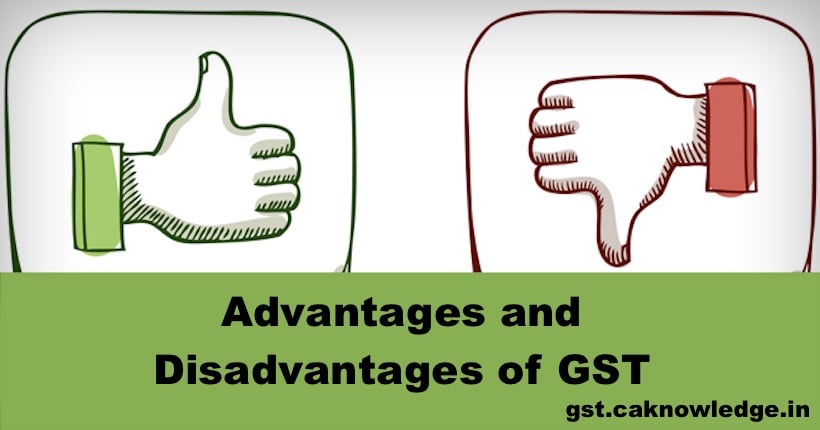Advantages and Disadvantages of GST (Goods and Service Tax).GST is one of the biggest taxation reform in India aiming to integrate state economics and boost over all growth by creating a single, unified Indian market to make the economy stronger.GST, as a well-designed value added tax on all goods and services, is the most elegant method to eliminate distortions and to tax consumption. Now check more details forAdvantages and Disadvantages of GST or Benefits of GST from below…
Content in this Article
Advantages and Disadvantages of GST

Advantages of GST
- This is a federal law, which means that the states will no longer have the right to make new laws on taxation towards goods and services.
- It simplifies the tax system and makes it easier to understand as well as cheaper to implement at various levels.
- Tax evasion at various stages will be eliminated as tax offsets can be collected only if taxes have been paid originally. You will also be able to buy raw materials or constituent materials for production only from those who have paid taxes, in order to claim benefits.
- It will be cheaper to buy input goods and services for production from other states.
- The current supply and distribution chain may undergo a change with a change in taxation system that does away with excise and customs duties.
- The consumer will get the end-product at cheaper rates because of elimination of multiple taxes and the tax cascade.
- As of now, petroleum and petroleum products have been kept out of the GST regime until further notice.
- Sale of newspapers and advertisements are also likely to fall under the GST regime, allowing the government to increase its revenue considerably.
- While there will be central GST and state GST, the tax applicable on goods and services being exported and imported between states in India would fall under an Integrated GST (GST) system in order to avoid conflict of dominion
Disadvantages of GST
- GST is not good news for all sectors, though. In the current system, many products are exempted from taxation. The GST proposes to have minimal exemption list. Currently, higher taxes are levied on fewer items, but with GST, lower taxes will be levied on almost all items.
- GST is not applicable on liquor for human consumption. So alcohol rates will not get any advantage of GST.
- Stamp duty will not fall under the GST regime and will continue to be imposed by states.
Recommended Articles
- Dual GST India
- What is GST
- GST Overview
- GST Rates in India
- GST Forms
- GST Downloads
- GST Invoice Format
- GST Registration
- GST Login
- GST Returns
- GST on Advertisement
